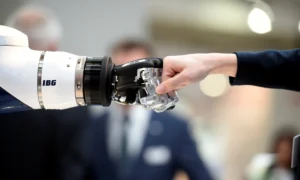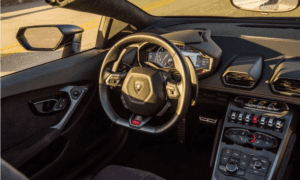The influence of automotive advancements extends far beyond the confines of traditional transportation. While cars remain a symbol of mobility, innovation in automotive technology is increasingly finding its way into various other industries.
Healthcare Revolution:
Automotive technology is steering its way into the healthcare sector, creating a paradigm shift in patient care. Telematics, originally designed for tracking vehicles, has found applications in remote patient monitoring. The integration of sensors in wearable devices allows healthcare providers to gather real-time data, enabling them to monitor vital signs and provide timely interventions. In emergency situations, ambulance fleets equipped with advanced communication systems and navigation tools ensure swift response times, saving critical minutes in patient care.
Smart Cities and Infrastructure:
The concept of smart cities is no longer a futuristic vision but a tangible reality, thanks to automotive technology. Intelligent traffic management systems, powered by data analytics and machine learning, optimize traffic flow, reduce congestion, and enhance overall transportation efficiency. Furthermore, the development of smart infrastructure, including sensor-equipped roads and parking spaces, facilitates seamless integration with autonomous vehicles, making urban living more sustainable and convenient.
Entertainment On the Move:
The integration of automotive technology with entertainment systems has transformed the in-car experience. Advanced infotainment systems offer a plethora of features, from interactive displays to voice-activated controls, turning the daily commute into an immersive entertainment experience. Augmented reality (AR) windshields provide drivers with real-time navigation information, enhancing safety and reducing distractions. This convergence of automotive and entertainment technologies is not only redefining the driving experience but also creating new opportunities for content creators and service providers.
Logistics and Supply Chain Optimization:
The logistics and supply chain industry has witnessed a revolution driven by automotive technology. Fleet management systems, utilizing GPS tracking and real-time monitoring, optimize route planning, reduce fuel consumption, and enhance overall efficiency. Autonomous delivery vehicles equipped with state-of-the-art sensors and robotic capabilities are reshaping last-mile logistics. Drones, integrated into delivery networks, further expedite the transportation of goods, making supply chains more agile and responsive to consumer demands.
Environmental Sustainability:
Automotive technology is not only changing the way we move but also addressing pressing environmental concerns. The shift towards electric vehicles (EVs) and hybrid technology aims to reduce carbon emissions and dependency on fossil fuels. Additionally, advancements in lightweight materials and aerodynamics contribute to improved fuel efficiency in traditional vehicles. The automotive industry’s commitment to sustainability is influencing other sectors to adopt eco-friendly practices, fostering a more responsible approach to technology development.
Aerospace Innovations:
The principles of automotive technology have found a place in the aerospace industry, revolutionizing aircraft design and functionality. Lightweight materials, originally developed for fuel efficiency in cars, are now integral to the construction of modern aircraft, reducing weight and improving fuel efficiency. Moreover, the automation and connectivity features pioneered in automotive systems are being adapted to enhance navigation, communication, and safety in aviation, pushing the boundaries of aerospace innovation.
Education and Research Advancements:
Automotive technology is playing a crucial role in education and research, particularly in the fields of engineering and computer science. Universities and research institutions leverage advanced automotive systems for hands-on learning experiences, allowing students to work with cutting-edge technology. Additionally, the development of autonomous vehicles has become a testing ground for artificial intelligence and machine learning algorithms, contributing to breakthroughs that extend beyond the automotive realm.
Cross-Industry Collaboration:
The convergence of automotive technology with diverse industries underscores the importance of cross-industry collaboration. As automotive innovations continue to shape various sectors, partnerships between automotive manufacturers, tech companies, and traditional industries are becoming increasingly prevalent. These collaborations foster a holistic approach to problem-solving, leveraging the strengths of each industry to drive innovation and address complex challenges.
Conclusion:
Beyond the confines of traditional transportation, automotive technology is a catalyst for innovation across diverse industries. From healthcare and entertainment to logistics and education, the influence of automotive advancements is reshaping the way we live, work, and interact with the world around us. As the automotive industry continues to evolve, its impact on other sectors will undoubtedly create a ripple effect, propelling us into a future where technology seamlessly integrates into every aspect of our lives



































